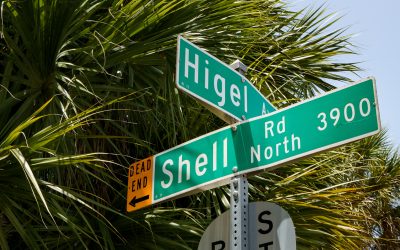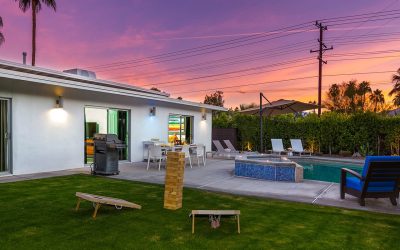Hurricane Preparedness, It’s the most important aspect of successfully surviving natural disasters. One Year Removed from Hurricane Irma.
The Real-Life Stories and Lessons Learned from a Vacation Rental Manager
Part 1
It was early September one year ago when a massive Category 5 hurricane was barreling towards Florida. Hurricane Irma wasn’t the first hurricane scare I’ve experienced in my brief 2-year period living in Florida and at first impression, it seemed like the usual routine storm with little worry coming from the lifelong locals. After all, a major hurricane hasn’t hit Sarasota in more than 30 years.
Boy, were we about to get a rude awakening. The storm came. Thus, from the experiences learned from Hurricane Irma, I wanted to share the lessons learned to better execute and prepare for such natural disasters.
Plan Ahead
First and foremost Be Prepared! It’s something that was always emphasized in Boy Scout training, and in retrospect, a motto I should have followed more closely when I moved to Florida. Proper advance preparation will reduce headache and unwanted stress or actions that require time and energy needing to be allocated elsewhere. When you’re in the chaos of the moment, ‘panic’ may arise for you and those around you. In these situations, it can become intense and intimidating to prepare appropriately. It’s jarring to search for everyday supplies such as water, food, batteries, and gasoline, not to mention fining empty shelves or available supplies when you’re in such a state.
The following emergency preparedness checklist has been broken into two sections on Sheltering in Place or Evacuating.
Section 1: Sheltering In Place
Know Who You Are Responsible For
When starting your hurricane preparations, try to get an idea of how many people you will be sheltering or taking responsibility for, as this will determine the quantity of food, water, and additional supplies you will need to purchase. My rule of thumb is to buy at least twice as much as you think you will need per person.
Well Planned Meals
Plan each meal ahead of time for up to 3-4 days. Knowing each of your meals ahead of time will help ensure you buy the appropriate amount of groceries and supplies. It will also assist you in the timetable for cooking each meal depending on your availability of utilities such as electricity, and natural gas.
Planning for meals during a hurricane doesn’t mean you must resort to eating beans out of can. Preparing meals ahead of time means you and your family/guests can eat like champs! There are plenty of great meals that can be prepared without electricity. Don’t forget to utilize other cooking sources such as grills or outdoor fire pits. Note: Do not bring your propane grill indoors. When planning your menu items, be sure to add nonperishable selections in the event you lose power for any length of time. If you want to create perishable dishes ahead of time which require refrigeration, great! – just be sure to stock the pantry with additional items as well.
Water:
Your water resources should be divided into three groups. Prepare enough water for regular use for 3-4 days. If you are on water well system that is dependent on electricity, plan water usage for up-to 7-10 days.
Drinking Water: Have at least 90 Ounces of water per person per day.
Cooking Water: Plan enough water for cooking meals and other kitchen purposes.
Grey Water: Gray Water will be used for all additional uses including flushing toilets, bathing, and washing dishes. Fill Bathtubs/ Sinks and coolers with water ahead of time.
Portable Water Filter/Iodine Tablets
A portable water filter is a great back-up option in a pinch should your city or well water system become compromised during the storm. In such situations, repairs may be days or weeks away depending on the extent of the damage.
Flashlights/ Battery Operated Light Pack
We recommend buying enough flashlight so you have at least 1 per room. Have a variety of flashlights from directional to lantern types. We also recommend a variety of battery operated and lithium ion rechargeable flashlights. As the hurricane approaches, D batteries will be one of the first supplies to be sold out on store shelves.
Tip: If flashlights are sold-out on store shelves, check-out camera stores which should have battery operated LED light panels. These LED panels often have long battery life and will be bright enough to light an entire room.
Extra Batteries
As to the previous point, batteries will be one of the first supplies sold-out on store shelves. Be sure to buy D batteries as soon as possible. They sell out FAST.
Extra Propane/Charcoal
When the power is knocked out sometimes a hot meal is just what is called for to bring back a sense of your humanity. Use all the perishables at the onset of the power outage. Save the non-perishable items for later.
External Battery Charger
Always make sure that your phone and battery operated flashlights will have plenty of juice. We recommend a battery charger with at least 50,000 mAh to keep your devices always charged.
Close Toed Sturdy Work Boots/Shoes
Keep those shoes on through-out the whole storm encase of sudden broken glass and/or storm debris.
Hand Crank Am/FM Radio
When the power goes out so does your connection to the storm updates. Don’t depend on cell service as local cell towers may be knocked out of service during the storm.
Important Documents in a Weather Sealed Container
Insurance Paperwork, Social Security cards, Medical and Financial records. Print Insurance paper work in case you are unable to access online records.
Extra Pet Food
Make sure to have enough food for Fido.
First Aid Kit
Optional Supplies
- Generator
- Chainsaw
- Gas & Engine oil for Generator and Chainsaw
- Battery-powered String lights
- Thunder Jacket for Dog
- Paper Plates & Plastic Eating Ware
- Extra Feminine Hygiene Products
- Board Games
- Rechargeable Portable Fan
Section II: Evacuating
Evacuation Routes A, B & C
Understand ahead of time of where you are going and how you are going to get there. Have multiple option routes based on traffic patterns and availability of Gasoline or EV charging stations.
To Go Bag
The Ten Essentials
A concept borrowed from my time as a Boy Scout. These are the ten items that are necessary to pack for any camping or outdoor excursion. I found applying them to a natural disaster scenario quite useful as well.
- Map and Compass,
- Sun Protection,
- Extra Clothing,
- Flashlight,
- First-Aid Kit,
- Matches and Fire-starters,
- Multi-Tool/Pocketknife,
- Extra Food,
- Water Bottle,
- Rain Gear
Additional Items
- Water Resistant Backpack
- Duct Tape
- Rope
- Toiletries
- $200 Cash
- Spare Mobile Battery Charger
- Animal Crate
- Extra Towel
- Two-way Radios
- Pillow & Blanket – Be Prepared to sleep in your car if need be.
Automobile
Empty the car out of all trash, clothing, and items that may be taking up unwanted space.
- Spare Gasoline
- Engine Oil
- Fresh Wiper Blades
- Check Spare Tire
- Tire Pressure
Join us for Part II where we deep dive into the importance of remaining calm during natural disaster preparedness.
Are You Evacuating Due to Hurricane Florence?
Altez Vacations is currently offering limited hurricane discount pricing in select properties.
Please contact us reservations@altezvacations.com if you are interested.




